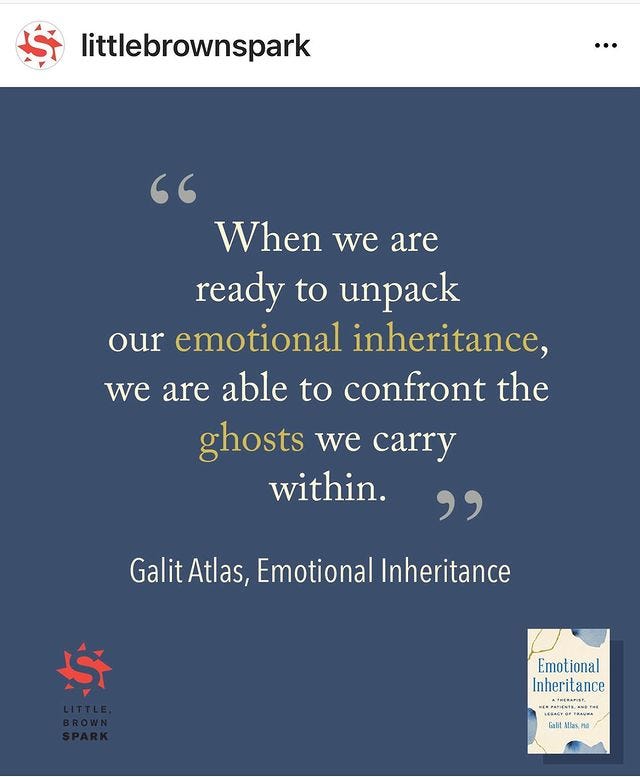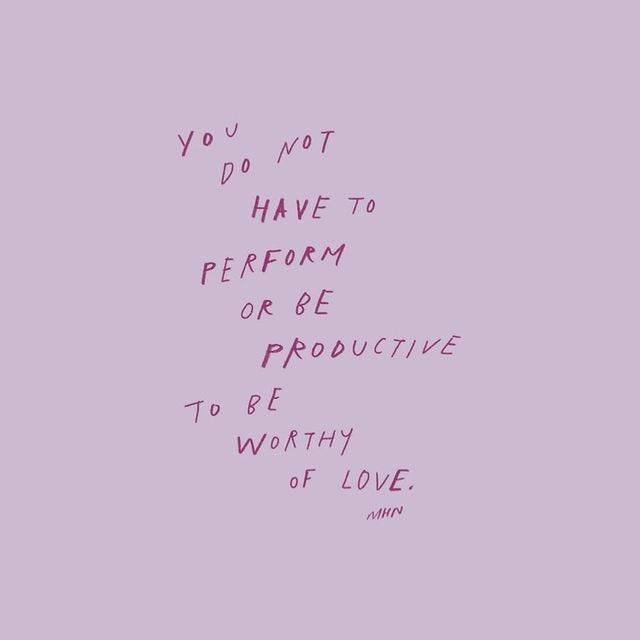In the days before the pandemic, one of my friends asked if her daughter could come over for a playdate. She was planning to be out of town over the weekend, attending a retreat outside of LA. I drooled with jealousy, thinking about an entire weekend away from my kids, a hotel room all to myself, exercise classes and massages the only thing on my agenda. As I offered up a Saturday playdate, asking about this place she was going, she said off-hand, as casual as the breeze: “I do this quarterly. It’s a necessary reset for me, getting away from the kids.”
As we parted ways, I was reeling from the shock of what she allowed herself as a mother. But I also began to notice a phrase that was bouncing around in my brain despite the fact that I was truly happy for her. Must be nice…. rang in my ears.
Must be nice to have a husband who will watch the kids.
Must be nice to have nannies to help out.
Must be nice to feel like you have the money to do something like that.
Must be nice to feel entitled to do something solely for yourself.
I pushed the thoughts aside and went on with my day. I was glad to have this woman in my life, because I recognized she was running on scripts very different than my own. This was a woman who was not afraid to hire help. They not only had nannies to care for their children, but the first time we went over to their home for a backyard barbeque, my mouth dropped open when at the end of dinner, I noticed a team of cleaners’ swoop in to the kitchen to deal with the after-dinner mess.
I was raised in the Midwest. Despite the fact that we lived in the relatively well-off suburbs of St. Louis, I had never seen people hire help. I could not get over the fact that she had outsourced what is always the worst part of hosting. I thought every dinner gathering ended in a storm of resentment at the end of the night as you dealt with an overflowing kitchen sink while your husband was happy to leave the dishes until morning.
A few weeks after I begrudgingly saw this friend walk away into her weekend of renewal, I was at school pickup and noticed a dad in our midst, a rare sighting in the school yard. I asked where his wife was, who was usually on hand this time of day, and he smiled and said she was in Iceland.
“For work?” I asked, incredulous.
“No, she’s actually there with some girlfriends.”
As my kids flocked to my side and we walked to the car, as I listened to the cacophony of them reporting on all the happenings of the school day, I had to bat away that little voice again, murmuring its displeasure. Must be nice to be able to take trips like that, it whispered as I walked.
This time, I realized that something was going on. Maybe this “must be nice” refrain was really my own resentment about the fact that I did not have those things for myself. Maybe it was my unacknowledged desire for what they granted to themselves (the freedom to take a trip, a weekend away from the kids) aching for acknowledgement.
To be clear, I could have taken a weekend to myself at a resort. I could have planned a special trip with girlfriends. I had a husband who would have gladly taken responsibility for the kids if it meant having a wife who liked her own life.
But I denied myself the very things I wanted. In fact, I didn’t even admit to myself that I wanted them.
“My daughter quickly comes to replace me as the primary object of my care. I become an undone task, a phone call I can’t seem to make, a bill I don’t get around to paying. My life has the seething atmosphere of an untended garden.”
—Rachel Cusk, A Life’s Work
Around this time, my sister sent me a post from Dr. Nicole LePera, known on social media as The Holistic Psychologist. It said: “Resentment is a sign you’ve abandoned yourself.” Holy shit, I thought. That’s it. That is my problem. I have completely abandoned myself. I wrote a previous Substack about how I was primed to do this. I wrote a piece for Isele Magazine about how women are primed to do this. Motherhood almost seems to require self-abandonment, as Rachel Cusk so beautifully demonstrates in A Life’s Work. For me, self-abandonment looks like denying my own needs. Putting others first. I also do it through over-functioning: doing too much, taking on more than my fair share, overworking, being constantly productive, running around like a chicken with its head cut off who still somehow is able to order groceries, do laundry, fill out permission slips even as its head is lying on the ground and its neck is spurting buckets of blood.


But when I over-function, I reach a level of rage and resentment that takes a while to wear off. It is like I wake up the next day with a resentment hangover. It lurks over me, every hour of every day, as I continue over-functioning, and abandoning myself, adding to the never-ending cycle of resentment.
“Whenever there wasn’t space for both of us in my days, I chose her needs over mine, skipping meals and showers and sleep – an impulse that came easily, as I was accustomed to shunning my own desires to serve the needs of others.”
—Doireann Ni Ghriofa, A Ghost in the Throat
During my early years of motherhood, I was resentful all the time. Resentful of my husband going to work. Resentful of people who didn’t have children. Resentful of other mothers in my social circle who allowed themselves time away from the kids.
I was tired of dragging this mantle of resentment everywhere I went. I decided that maybe instead of stewing in resentment all the time, I could acknowledge that my “must be nice” voice was a signal. It was time to get curious about what that other person had that I wasn’t granting to myself.
Glennon Doyle calls resentment “a bitter yearning.” She writes, “we are only bitter about other people’s joy in direct proportion to our commitment to keep joy from ourselves.”
Of course, I couldn’t always have what the other person had. We were never going to own a vacation home in Italy. I could not somehow conjure a father who was still alive. But often the very things I was resentful of were things I could claim if I could just acknowledge my wanting; if I could listen to my un-acknowledged need.
“Having a child solves the impulse to give oneself nothing. It makes that impulse into a virtue. To feed oneself last in self-abnegation, to fit oneself into the smallest spaces in the hopes of being loved - that is entirely womanly. To be virtuously miserly towards oneself in exchange for being loved - having children gets you there fast.”
—Sheila Heti, Motherhood
Unfortunately, it was the many messages of motherhood that left me feeling like I couldn’t put myself first. Because if our mandate as mothers is to always prioritize the children, then to do what these two women did – to go on trips, to spend time away from their children – is quietly revolutionary. To take these trips, they had to prioritize their own happiness over the discomfort of their children. This was what so often held me back. I thought about my children’s reaction to me being gone, their disappointment, the fact that they would cling to me and miss me and God forbid, maybe even cry. It seemed easier to avoid all that and just ignore my need.
But that unfulfilled need would not be ignored. It came out in anger at my children, frustration at my husband, rage at the mess of the house. Because I was denying myself what I wanted, and what I needed, resentment became the primary language of my motherhood.
Yet I soon began to wonder if resentment ran in my blood.
When I think about my maternal grandmother, the first word that comes to mind is unhappy.
When I remember her, I think of her tirelessly cleaning the kitchen. Though that word tireless is inaccurate. She would be tired. She would come in when the task was finally done and collapse on the davenport (yes, she lived in the Midwest) with an exasperated sigh.
I don’t blame her for being tired. It was tiring being her. Before I came into her life, she raised four children (four!) and inhabited a large house that required constant maintenance. Some of her fatigue was self-inflicted, stemming from her exacting standards for how something was to be done. I remember as a teenager offering to help with the dishes after dinner. But instead of being grateful, she often seemed nervous that I wasn’t up to the task. Before granting me access to the sink, she would give detailed instructions for how to wash the dishes. When I would take her place at the sink and try to do as I was told, my grandmother never disappeared into the other room to relax. She would bustle around, doing other tasks in the kitchen, ensuring I was doing things right.
I rarely passed the test.
After a few irritated sighs, she would just take over, because it was no more relaxing to watch me do it wrong than to just do it herself, the right way.
It was not easy being my grandmother.
Since my grandmother’s death, I’ve talked with my mother about her mother’s unhappiness. My mother admits that her mother was not cut out to be a stay-at home mom and housewife, although that was all that was offered to her at the time. My grandmother graduated from Michigan State in 1944 with a BS in Medical Biology. She was smart and capable and probably could have done very well in the workforce. In addition to homemade meals on the table each evening, she sewed all her children’s clothing by hand (including prom dresses) and found ways to continue to be creative even once her children were grown by making Barbie clothes for her grandchildren, and then American Girl Doll clothes. These are masterpieces of craftmanship, stunning in their exactitude and attention to detail. This was a woman who was fully capable of many things, but the world only provided a few acceptable paths for her to exercise her industriousness.
It is no wonder that resentment resided deep in her bones.
My grandmother lived during a time when women were not encouraged to focus on themselves, to listen to their own needs. She was expected to be fully content in the domestic space. Her purpose was to serve her husband and children. She was not the center of her own universe.
She also grew up during the Depression. Though the Depression ended, that expectation of scarcity remained. It was made evident in the reused aluminum foil my grandmother stacked by the microwave, the piles of plastic cottage cheese and yogurt containers lining the basement steps. Who needed Tupperware when you could reuse what you received for free with your grocery store purchase? I’m sure the phrase “we don’t need…” was a refrain my grandmother used that led my own mother to believe she should be able to do without and thus that got passed down to me.
To want something was greedy, selfish, dangerous, even.
To do without was selfless, glorified, holy, right.
You can see how this belief system could impact much more than what was bought at the store and trickle down into what was granted to yourself.
As I too began to huff around my own household in a storm of resentment, I realized that I didn’t want to pass this legacy on to my own girls. I wanted them to learn that self-sacrifice and self-denial were not requirements of motherhood. That you could be a woman, be a mother, without denying your own self.
To claim my own wanting was maybe the key to getting off the resentment merry-go-round for good. To grant myself access to my desires, to listen to them and give in to them, might perhaps be the path of freedom. This is not easy work. We have been conditioned to subsume our desire as women our entire lives. But at some point, we must stop pretending we don’t have wants, needs, and desires. We must allow ourselves to relish in our humanness, which means we have limits, and want things, and can sometimes even give in to those wants. (I have lots of thoughts about how the story of Eve and the apple might provide the backbone of why we learn to do without).
I don’t have enough time to unpack all my thoughts about emotional inheritance, cycle breaking and the power of allowing desire. Those will have to be for another time. But I want you to consider that resentment is an invitation to an awakening. Resentment is sign you’ve abandoned yourself. If you too start to hear the words must be nice rattling around your head, it means that you want something. Identify it. Allow your desire. See if you have the ability to grant it to yourself. Believe that you deserve it.
“Why had she not been demanding more? Why had she not claimed the power and authority that were hers? Where had she learned to push it all down to the pit of her stomach, all her sadness and rage and annoyance, to fill up the space above with white wine, to carry on to the best of her ability and pretend toward contentment when all the while she could have been saying things, saying Fuck this! and Could you please? and I need. She returned to her mother lying in the dark grass in the middle of warm summer nights and wanted to pull her up, take her by the shoulders, shake her with both love and great, great anger. Look at you! she would say. You’re amazing! You’re my mother! Why are you acting like this? Go to Europe. Insist on your joy. Time is short, and you must make great haste, not only for yourself but for me as well. Please. I’m begging you.”
—Rachel Yoder, Nightbitch
Taking a pause:
I wanted to let you all know that I am putting The Mother Lode on sabbatical for the summer. Some of it is that the routine of days with guaranteed childcare due to school are upended thus I am looking forward to the next 9 weeks with intermittent time to work. Another reason is that I really want to focus on the book proposal I started in March. It requires a different kind of headspace than the one required by The Mother Lode and I want to give that book the space and time it needs to show itself to me.
Don’t worry, this means I’ll be gathering lots of good material for the fall. I have posts planned on The Glorification of Motherhood (and what it means when Mary is heralded as the ultimate Mother), Maternal Heritage (or what we learn about motherhood from our ancestors) and Against Guilty Pleasures, which examines the ways we’ve learned to feel guilty about what makes us feel good, and how to tap into our wanting, our desire, and our right to pursue joy and pleasure unhindered.
Thank you for reading and supporting my work. If you value my writing, please consider becoming a paid subscriber.
If you are a newer subscriber, there is an entire archive of content for you to read on the Substack website. Highlights include Owning Our Ambition, The Patron Saint of Permission (AKA Glennon Doyle), The Challenge of the Second Child, Maternal Finitude, Good & Mad (or what to do with our anger), and Why I Wish I Had a Wife. If you become a paying subscriber, you also gain access to my Cultural Cliff Notes, which dissect everything motherhood happening in the world at the moment.
I know many of you are mothers who read this. I wish you a summer that allows you to take time for yourself, great babysitters and day camps that grant you the ability to work with total focus, partners who share the load, reading that inspire you (and allows you to escape), and children who know how to entertain themselves without screens.
I leave you with this:






